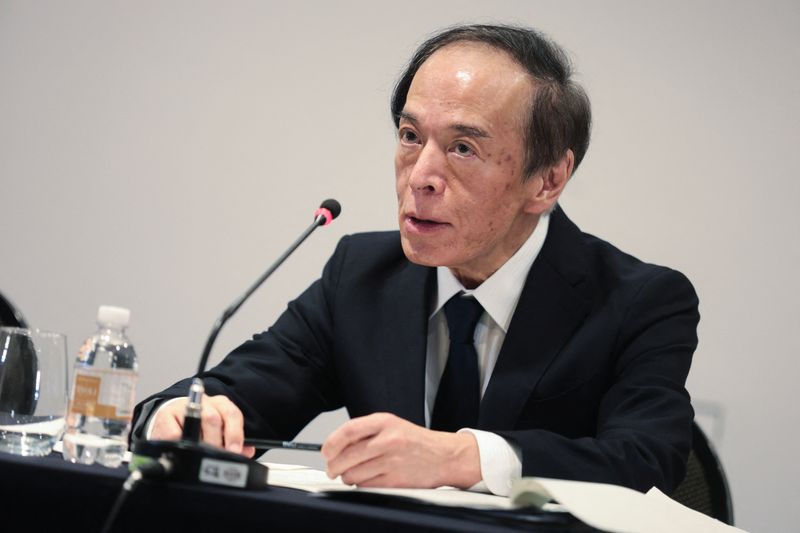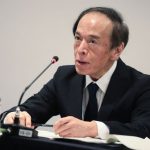WASHINGTON (Reuters) -Bank of Japan Governor Kazuo Ueda said on Friday the central bank “very likely” will raise interest rates if underlying inflation continues to go up, and begin reducing its huge bond buying at some point in the future.
The central bank must maintain loose monetary policy for the time being as underlying inflation remains “somewhat below” its 2% target, and long-term inflation expectations are still near 1.5%, Ueda said.
Having ended its various unconventional monetary easing measures in March, however, the BOJ has brought more flexibility to its policy and may change its short-term interest rate target depending on how upcoming data unfold, he added.
“We will proceed cautiously, initially assessing the impact of our recent policy changes on the economy and inflation, then considering further adjustment as deemed appropriate, perhaps extracting insights on the neutral rate along the way,” Ueda told a seminar hosted by the Peterson Institute for International Economics.
The BOJ will also begin to cut its purchases of Japanese government bonds (JGBs), though the timing and extent of the reduction are yet to be determined, Ueda said.
“Irrespective of what the data will say in the near future, we will like to find a way and timing to reduce the amount of JGB purchases,” he said, adding that the central bank will take time in reaching a decision.
The remarks reinforce market expectations that the BOJ will raise its short-term interest rate target from the current 0-0.1% range sometime this year.
In March, the BOJ ended eight years of negative interest rates and other remnants of its unorthodox policy, making a historic shift away from its focus on reviving growth and quashing deflation with decades of massive monetary stimulus.
Markets will be on the look-out for clues on the next rate hike timing when the BOJ releases fresh quarterly growth and inflation forecasts at its policy meeting next week.

While the BOJ will be watching developments in inflation expectations in deciding when to hike rates, it will first scrutinize data on wages and how rising wages could affect service prices, Ueda said.
“If underlying inflation continues to go up, we will very likely be raising interest rates,” he said.
To read the full article, Click Here

